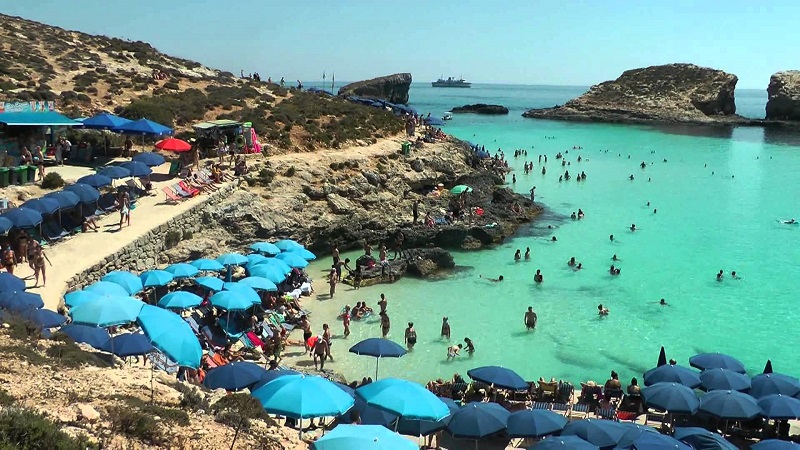Tourist numbers continue to grow as do calls for sustainability, yet each year everything remains the same. Change only comes in the form of vague promises of eco-tourism establishments that often do not share anything with sustainable actions except for the name.
The biggest issue, as the Malta Hotels and Restaurants Association (MHRA) pointed out, is the limited carrying capacity of an island the size of Malta. Yet, the number of tourists will always be the primary focus as long as each tourist is seen as a large euro sign rather than a hazard to the future of the area.
When Joseph Muscat makes overzealous statements claiming to be in a situation “where employers cannot find enough workers” the lack of forethought for the future becomes clearer. There is not a thought for the fact that those jobs depend upon maintaining the resources that will draw in tourists.
Tourism depends on the environment as its main resource, after all it is the beauty of the islands that draws in the tourists. Despite that, the industry cannot self-regulate and maintain sustainability.
Foreign tourist numbers have grown year on year: 2017 brought over 300,000 more tourists than in 2016, with 2018 already set to surpass 2017. While those numbers may be translated into money, they are also unavoidably translated into increased crowds, traffic, pollution and unmanageable waste.
A lack of reform despite that reality is evident. Out of over 200 hotels on the island only 22 are ECO certified by the Malta Tourism Authority. Yet the true regard for sustainability in that certification is also questionable, as profitability is listed as one of the benefits of the certification.
Even as one of the most densely populated areas in the world, there is still no consideration of limitation. High rise buildings continue to be confirmed, as shown by the example of the db Group proposing a new 37-storey residential tower and a 19-storey complex. Similarly to the exclamations of unsustainable tourism, protests against developments of this kind also fall on deaf ears – profitability takes precedence.
Yet is there really an opportunity for change? The chain of political influence dictates it is not possible, with the Environment and Planning authority being influenced by government ministers who are in turn influenced by lobbyists in favour of mass property and tourism development.
A fall in profitability is not the only preventing factor which condemns tourism to its current unsustainable state. The only thing as valuable as money is power and any radical change to the status quo will endanger that power.
This is visible in a hesitancy to raise water prices despite water scarcity. While it would be beneficial in reducing water consumption, such a change would fail to appease voters.
As a result there will always be apathy to reinventing the ways of operation, especially when it comes to an economic activity as meaningful as tourism.
Yet Maltese people themselves struggle to keep the island sustainable even without the added pressure of over two million foreign visitors.
It is clear those in power lack the initiative to change the dynamics of tourists’ contribution to the country. Until they do, the price we pay is the loss of that which draws them.













